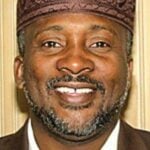“When comes the Help of Allah and Victory. And thou dost see the People enter Allah’s Religion in crowds. Celebrate the Praises of thy Lord and pray for His Forgiveness: for He is Oft-Returning (in Grace and Mercy).” Qur’an, Chapter 110; verses 1-3
Al-Islam, commonly called “Islam,” has been anchored as a bona fide religion within the African American religious mosaic. With the arrival of the first slave ships to the Americas, embodied in the hearts and minds among its “cargo” was the message and the spirit of Islam. This fact was acknowledged by President Barak Obama, a Christian. Speaking at the Islamic Society of Baltimore, Obama declared, “Here’s another fact: Islam has always been part of America. Starting in colonial times, many of the slaves brought here from Africa were Muslim. And even in their bondage, some kept their faith alive. A few even won their freedom and became known to many Americans.”
Slavery distanced Africans from their pre-slavery family ties, African culture and religion; however, within a few decades after the Emancipation Proclamation many efforts to fully reunite the newly freed slaves with their African and Islamic past were underway. The revival or rebirth of Islam into the lives of African Americans — through various stages of development — began, often times with quasi expressions of Islam. The beginning of the 20th century witnessed a slow reintroduction into many African American communities the names of Allah, Muhammed and the greetings “As-Salaam Alaikum.”
Great men such as Noble Timothy Drew Ali, Marcus Mosiah Garvey Sr., Mr. W. D. Fard and The Honorable Elijah Muhammad sought to address the needs of a whole people recently freed from chattel slavery, while leading them on a self-determined pathway toward Al-Islam — a pathway independent of the former slaveholder and the dusty vestiges of slavery.
These Islamic-based efforts within the African American community for the most part were birthed upon American soil, with the exception of maybe the India-based Ahmadiyyah Movement. One interesting fact about all of these movements: None of them sought permission from Mecca or any other ruling body of Islam in the Middle East.
The Hon. Elijah Muhammad emphatically told the Islamic world “that neither Jeddah nor Mecca have sent me! I am sent from Allah and not from the Secretary General of the Muslim League. There is no Muslim in Arabia that has authority to stop me from delivering this message that I have been assigned to by Allah. … I’m not taking orders from them.”
Noble Drew Ali established the Moorish Science Temple of America (MSTA) circa 1913.
Before the 1930 arrival of Mr. W.D. Fard, the nascent seeds of the Islamization of African Americans had taken root in the hearts and minds of many African Americans. Mr. Fard, taking full advantage of that situation and its fertile ground, raised up Elijah Muhammad to be the one to take the lead in producing the largest Islamic community, called the Lost-Found Nation of Islam in the Wilderness of North America (NOI).
Inclusive of all these Islamic movements and voices — the Ahmadiyyahs, MSTA, NOI, and the UNIA — in the 20th century, Islam grew and developed to become a legitimate and viable religious and cultural option for African Americans.
Another strong attraction of Islam within the African American (Black) community is the absence of white control, and in many ways an absence of Arab or foreign control. Slavery produced in African Americans an insatiable hunger for a true sense of a “for us, by us,” all-encompassing freedom.
The Islamization of African Americans has produced a new “language” within the African American community, a new language commensurate with having new family names, improved diets and modest attire, religious and cultural achievements so impactful until it influenced non-Muslim family members and friends.
The 110th chapter of the Qur’an says, “When comes the Help of Allah and Victory. And thou dost see the People enter Allah’s Religion in crowds. Celebrate the Praises of thy Lord and pray for His Forgiveness: for He is Oft-Returning (in Grace and Mercy).” This same celebration is on full display in the African American community. From meetings in storefront Islamic centers as well as Islamic community life in newly constructed masjids (commonly called “mosques”), we are witnessing a booming Islamization of African Americans, a process that understands very well that Al-Islam is for all people and that Prophet Muhammed (peace be upon him) is the leader for all people.
Michael “Mikal” Saahir is the resident Imam of Nur-Allah Islamic Center. He can be reached at nur-allah@att.net or at 317-753-3754.







